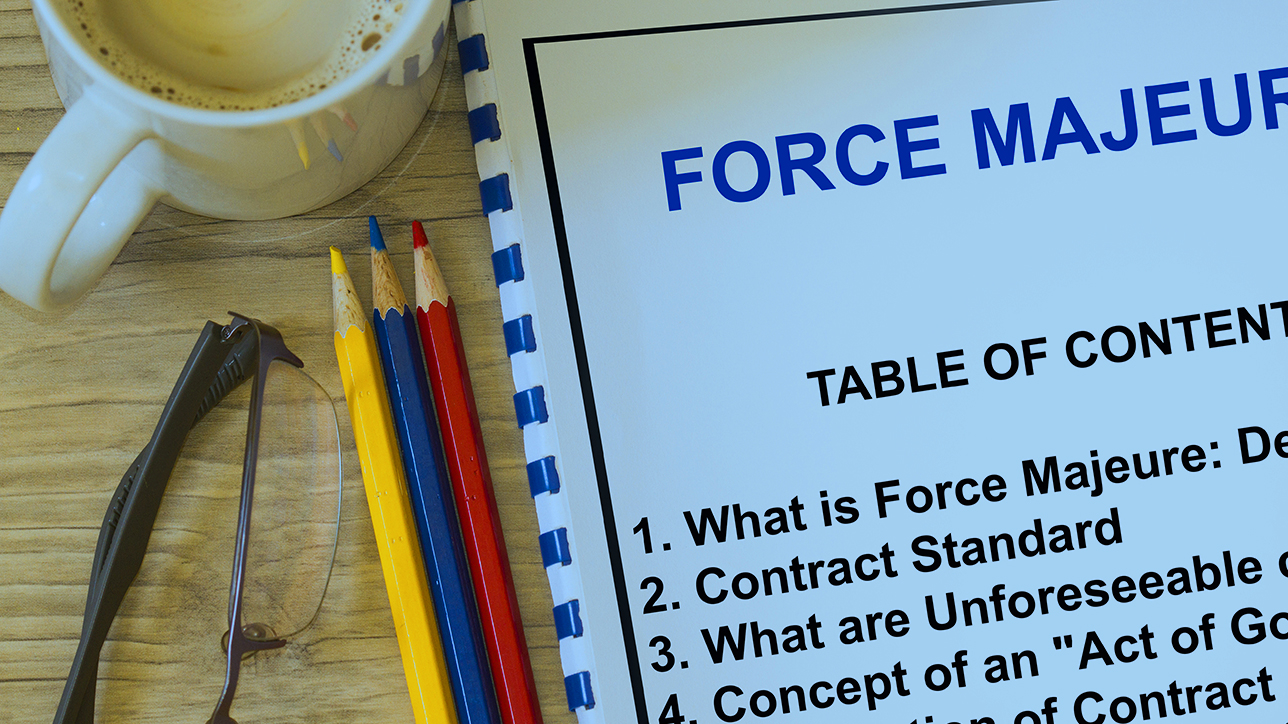By: Bryan Mashian, Mashian Law Group, APC
As business closures due to the Coronavirus pandemic continue and grow, tenants are scrambling through their leases looking for any way to not pay rent while their businesses are closed. Conversely, landlords are dissecting these same leases hoping tenants remain obligated to pay rent during a closure. Both parties are looking for a “force majeure” (or acts of God) provision which addresses what happens when an uncontrollable and unforeseeable event interferes with performance of a contract.
The leases published by AIR CRE do not contain a force majeure clause. The AIR CRE leases, similar to most commercial leases, do contain provisions requiring that rent shall, at all times, be payable when due. The AIR CRE leases do not contain a standard clause specifically relieving the tenant from paying rent based on the current Coronavirus pandemic, however, a Base Rent Reduction/Deferral Amendment will be released by AIR CRE on April 6, 2020.
But force majeure clauses – even if included in a lease – typically require tenants to continue to pay rent during the events outside the tenant’s reasonable control that prevent the tenant from performing its other lease obligations. Generally, to benefit from a force majeure clause, all its specific requirements must be satisfied. First, the specific event must be stated to be a force majeure event before the parties’ rights and obligations are affected. Force majeure clauses typically address events (besides fire, etc. which can be covered by proper casualty insurance) that are of a nature to be unforeseeable, out of the control of either party and not preventable. Until this current pandemic, lease force majeure clauses did not usually include viral diseases or biological epidemics in the scope of force majeure events.
Second, a typical force majeure provision explicitly states that it does not abate rent. Rather, the common remedy provided in case of a force majeure is to extend the time for the affected party’s performance by the time that performance is prevented or delayed. For example, the force majeure clause would extend the time for completion of improvements, lease commencement or delivery date of premises (if they are dependent on completion of improvements) by the number of days of delay caused by the covered force majeure event. Sometimes the force majeure clause will excuse an obligation (other than rent payment) such as requiring a tenant to open or to continuously operate its store.
The AIR CRE leases extend the time to cure a non-monetary default by either landlord or tenant. Specifically, lease paragraphs 13.2 (for a tenant default) and 13.6 (for a landlord default) provide an initial 30-day period after written notice to cure certain non-monetary defaults. This 30-day period is then extended if the nature of the default is such that more than 30 days are reasonably required. To extend the cure period, the cure has to be started within this 30-day period and thereafter diligently prosecuted to completion. So, the cure period of certain non-monetary defaults can be extended due to the conditions created by the Coronavirus pandemic.
AIR CRE leases require tenants to carry business interruption insurance to cover loss of their income and incurring extra expenses. Paragraph 8.4 of the leases does not dictate the exact type of perils that tenant must insure or a minimum coverage amount. Rather, these decisions are left to the tenant to obtain coverage for “all perils commonly insured against by prudent lessees in the business of Lessee or attributable to prevention of access to the Premises as a result of such perils.” Business owners would be wise to determine if their losses or extra expenses due to the Coronavirus pandemic are covered by business interruption insurance.
Similarly, the AIR CRE leases require the landlord to carry rental loss insurance which usually covers tenant’s rent abated by landlord due to fire, etc. Landlords should also determine if there is coverage under rental loss policy for any rent lost due to the Coronavirus pandemic.
With or without a specific rent abatement lease provision, both landlords and tenants should consider using monies being provided to aid businesses by federal, state and local governments. Government aid in response to the COVID-19 pandemic may not be sufficient and parties to commercial leases will naturally seek ways to reduce or eliminate their business losses. Some may consider resorting to the casualty clause in the lease which generally abates rent in case of fire, earthquake, flood, etc. The lease damage and destruction provisions typically only apply in case the tenant cannot use the premises due to actual physical damage, and not due to communicable diseases.
Still some tenants may reach for the novel legal basis of seeking rent abatement due to government forced closures being considered eminent domain (or condemnation). This theory would require “just compensation” (rent abatement and other damages) for the government effectively converting the premises for “public use.” Whether temporary government business closures due to COVID-19 are a “taking” is an untested theory.
Some may still resort to the courts for relief based on various legal theories for excuses or defenses of performance, such as illegality, frustration of purpose, prevention of performance, impossibility, emergency, unconscionability and absence or lack of control. Landlords and tenants will probably take polar opposite positions about the meaning of the lease, which would result in litigation. No reported case has yet ruled on the applicability of COVID-19 pandemic as a force majeure event. So, we wait to see how the courts will enforce force majeure provisions, which will undoubtedly depend upon the particular force majeure clause and the parties’ unique circumstances.
Bryan Mashian is an attorney at Mashian Law Group, which focuses on commercial real estate and business law.
This publication and the material contained here are for informational purposes only and are not intended to constitute advertising, solicitation or legal advice.

